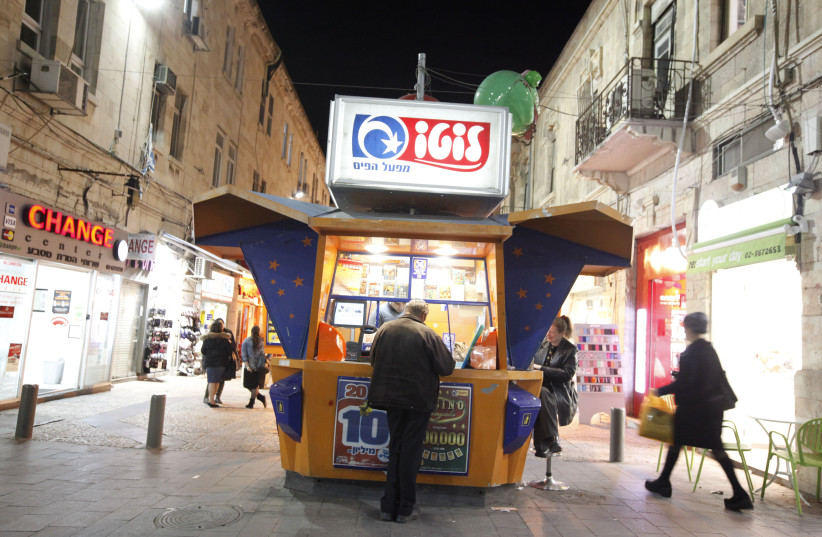Mifal Hapayis announced the winners of the 2023 Sapir Prize for literature this week at a ceremony in Ofakim, and the top award went to Ofra Offer Oren for her book, What Happened to Hagar in Eilat? It is an unusual work of fiction composed of 336 sonnets. The book, published by Kinneret Zmora Bitan, deals with the aftermath of sexual abuse.
The Sapir Prize for a Debut Novel was given to Ilana Rudashevski’s Taska, published by Shtaim, which is about a family that immigrates to Israel from the Soviet Union in the ‘70s.
The ceremony, led by Chen Amsalem-Zagori, took place in the presence of the Mifal Hapayis chairman, CPA Avigdor Itzhaki, and CEO Benjamin Dreyfus. Among the participants in the ceremony were musicians Idan Raichel, Zehva Ben and Jimbo J, along with the Children’s Choir of Ofakim. Other residents of Ofakim were among the guests.
The winners were chosen by a judging committee headed by Oren Nahari, a journalist and lecturer who is the author of several non-fiction books.

Why Ofakim was chosen
Nahari commented on the decision to hold the ceremony in Ofakim, a city that suffered losses during the October 7 massacre by Hamas: “Ofakim... continues to remind us – and there is no person in the country who does not remember, is not aware – that we are in the midst of a crisis; in the midst of a war.
“And many times, when my friends and I discussed books – which book is better, which more reflects the country, Israeli society – we felt that it was strange, maybe even a little ridiculous to talk about books when at this very moment hostages are dying in the Hamas tunnels, at this very moment our soldiers are fighting against a brutal, bloodthirsty and criminal jihadist terrorist organization a few kilometers away from here, and are also fighting in the North, and other arenas,” he said.
“But one of Israel’s greatest strengths is – and always has been – Israeli culture, in all its varieties. After all, even in the midst of the War of Independence, the most difficult of Israel’s wars, songs were composed, hymns were sung, books were written and plays were staged,” Nahari said. “And we, all of us, are fighting for the image of the State of Israel, for its future. And yes, Israeli culture is a central pillar of the country, an essential part of the nation – which I remind all of us, among other things, is the people of the book.”
The winner of the Lottery’s 2023 Sapir Prize for Literature will receive a grant of NIS 180,000 and her book will be translated and published in the Arabic language and translated into another foreign language of her choice. The second-prize winner will receive NIS 75,000.
In addition, the lottery will purchase an edition of 500 books from the five writers selected as part of the short list and will give them as a gift to public libraries throughout the country. The other books on the short list were Biotope by Orly Castel-Bloom (published by Siman Kria/ Hakibbutz Hameuchad), Ho-Mama by Tami Bezaleli (Afik Israeli Literature), Life by Gail Hareven (Ahuzat Bayit), and Bite Marks by Hanoch Marmari (published by Keter).
Neria Barr contributed to this report.
